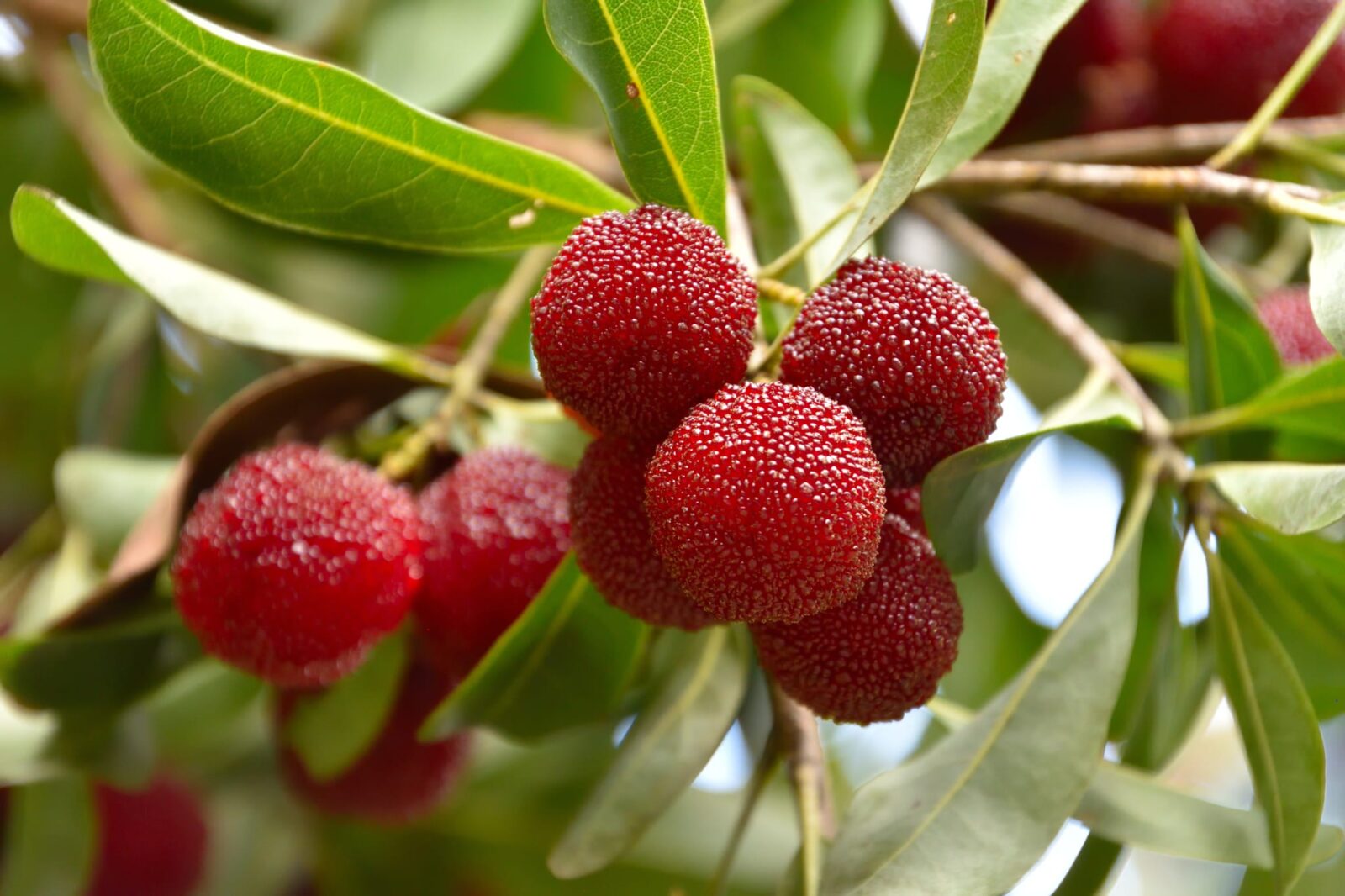Grower insights guiding the next Rice RD&E Plan

 EMERGING INDUSTRIES / Wednesday, 9 October 2024
EMERGING INDUSTRIES / Wednesday, 9 October 2024 
While pomegranates and red bayberries are at different stages of development, both industries hold significant growth potential.
Red bayberries, a new industry for Australia, present a unique opportunity. In China, red bayberries are a million-dollar industry. As interest in fresh red bayberries grows in Australia, there is considerable potential for market expansion.
The latest breakthrough for these industries comes from the pioneering project Innovative Propagation Technologies for New and Emerging Horticultural Crops. Supported by a Business Innovation Grant, this project is set to scale production of these crops.
Transforming plant propagation with tissue culture technology
Traditional propagation methods have long delayed the commercial potential of the pomegranate and red bayberry industries, but new tissue culture (TC) techniques are changing the game.
Tissue culture involves propagating or multiplying plants in a jar, in a controlled lab environment using a nutritive medium. This process allows a huge potential to scale propagation in a short period of time with minimal materials, at any time of the year.
“You get a nicely rooted plant in a little jar ready to send to nurseries, allowing a smooth process to clonally propagate thousands of plants,” Dr. Jayeni Hiti-Bandaralage, Co-founder, Director & Chief Scientist of J&S Plant Biotech Pty Ltd expained.
Queensland is identified as a favourable climate for growing pomegranates and red bayberries, which prompted efforts to propagate these plants via tissue culture in this research project, marking a global pioneering initiative.
Systematic experiments were able to refine the tissue culture techniques until the team achieved high-quality plants with commercially viable multiplication rates and rooting percentages. Then, in Mareeba, 500 pomegranate plants were field-planted for two trials: comparing with conventional rooted cuttings and establishing Australia’s inaugural commercial TC pomegranate orchard to refine management practices.
”For the first time in Australia, we completed the entire process – from developing the tissue culture technology to scaling up production, moving the plants to nurseries, and planting 500 pomegranates in the field. We proved that large-scale propagation through tissue culture is feasible, and the plants are showing excellent growth and adaptability in commercial field environment,” Dr Hiti-Bandaralage said.
The team underwent a similar process with red bayberries, however, it had to overcome the inherent challenges of tissue culturing this species, which are notoriously difficult due to their high recalcitrancy to in vitro culture conditions.
“The red bayberry is typically a challenging and time-consuming plant to propagate as it involves germinating seedlings, followed by grafting a small cutting onto the rootstock. This process takes about a year due to the plant’s slow growth rate.
From labs to orchards
Tissue culture technology brings a wide array of benefits that extend well beyond the immediate impacts on emerging industries like pomegranates and red bayberries.
According to Dr. Hiti-Bandaralage farmers will have access to better quality, pest and disease free and more vigorous plants supplied to them year round with no long waiting periods.
“In addition to accelerating growth and establishment, tissue culture technology is essential for augmenting plant varieties. “This technique allows us to increase the diversity of pomegranate varieties in Australia,” added Mr Shaun O’Brien, the project manager of J&S Plant Biotech Pty. Ltd.
The technology also serves as a foundation for integrating other advanced methods such as genetic transformation and gene editing, paving the way for further research and innovation.
The project, funded by a Business Innovation Grant, underscores the importance of initial seed funding for advancing new technologies. Without this support, the development and commercialisation of tissue culture technology would have faced significant challenges.
“The other thing is that once AgriFutures approved our funding application, we received the validation and confidence we needed to proceed with the project and promote it to the wider public as something that has significant industry-wide value,” Dr Hiti-Bandaralage explained.
Senior Manager of Emerging Industries, Dr Olivia Reynolds, emphasised that this kind of research not only drives productivity and resilience.
“Supporting these propagation technologies accelerates industry growth by providing stakeholders with access to superior plant varieties, enhancing disease resistance, and improving yield.
“The new tissue culture technology will enable rapid, year-round propagation of elite clonal plant materials, improving scalability and efficiency,” Dr Reynolds. said.
As these technologies are commercialised, they promise to not only give the pomegranate and red bayberry industries a growth spurt, but to also open up new opportunities for innovation and expansion across the broader horticultural sector.
 CHICKEN MEAT / 09.10.24
CHICKEN MEAT / 09.10.24  THOROUGHBRED HORSES / 09.10.24
THOROUGHBRED HORSES / 09.10.24  GLOBAL INNOVATION NETWORKS / 09.10.24
GLOBAL INNOVATION NETWORKS / 09.10.24  WORKFORCE AND LEADERSHIP / 09.10.24
WORKFORCE AND LEADERSHIP / 09.10.24